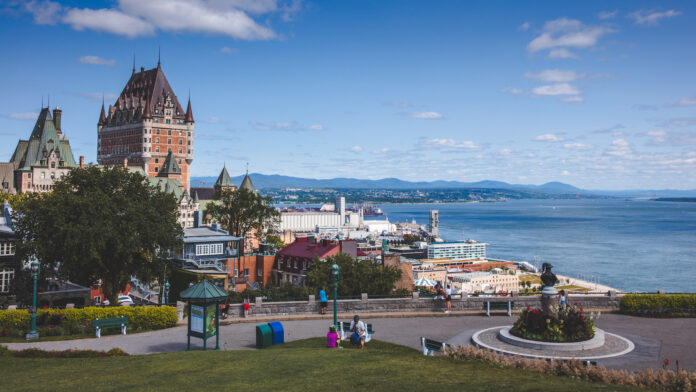
Public consultations on immigration started in Quebec Tuesday to determine what its strategy should be from 2024 through to 2027 to deal with both serious labour shortages and economic growth while preserving the French language.
During the three-week consultation process that started Sept. 12, a committee of the National Assembly of Quebec, the province’s legislative body which is officially called the Assemblée nationale du Québec, will consider the 77 briefs which have already been submitted and listen to roughly 70 experts and organizations that have asked to make presentations.
Business groups in the province are solidly in support of increased immigration to the province.
The latest data from Immigration, Refugees and Citizenship Canada (IRCC) reveals Quebec in fact welcomed 68,720 new permanent residents last year and had already received another 33,550 new permanent residents by the end of July this year,
That level of immigration, if the trend seen in the first seven months of this year were to be continued throughout the rest of 2023, would see 57,514 new permanent residents settling in Quebec by the end of this year.
Read More Canada Immigration News
Quebec Universities Reject Federal Housing Minister Sean Fraser’s Proposal to Limit Study Permits
1,384 Invitations To Apply Sent To Candidates In Quebec Arrima Draw
Quebec is Being Pressured to Increase its Capacity for Family Reunification
Michel Leblanc, president of the Chamber of Commerce of Metropolitan Montreal, wants Quebec to raise its immigration target to 60,000 to help resolve labour shortages.
“This need, which is quite predictable, can be explained by the demographic tightening of Quebec’s population, which is occurring at a time when our economy is experiencing strong structural momentum,” Leblanc has reportedly said.
“Our society as a whole has to contend with a sustained increase in the number of vacancies in all areas, from health care to education to high-tech sectors.”
The chamber of commerce president says higher immigration to Quebec should be accompanied by a housing strategy to reduce the pressure on real estate prices and rents that would be created by the extra demand of new residents in the province.
Quebec Premier François Legault and Christine Fréchette, the Quebec minister responsible for the Ministre de l’Immigration, de la Francisation et de l’Intégration (MIFI), the province’s immigration department, have been adamant that immigration to the francophone province must be limited to 50,000 new permanent residents yearly to ensure the survival of the Quebecois culture.
Premier Legault Has Deemed More Immigration Would Be ‘Suicidal’ To The French Language
In the run-up to the last provincial election, Legault told a business audience that raising immigration levels would be “suicidal” to the French language and insisted Quebec must not accept substantially more than 50,000 new permanent residents annually.
After the election, the premier doubled down on that vision of Quebec by putting forth a plan to limit economic immigration to the province to only those foreign nationals who already speak French.
“As premier of Quebec, my first responsibility is to defend our language and our identity,” said Legault. “During the past few years, the French language has been in decline in Quebec. Since 2018, our government has acted to protect our language, more so than any previous government since the adoption of Bill 101 under the Levesque government.
Watch video:
“But, if we want to turn the tide, we must do more. By 2026, our goal is to have almost entirely francophone economic immigration. We have the duty, as Québécois, to speak French, to daily pass on our culture and to be proud of it.”
Under the proposed changes to Quebec’s immigration system, all adult applicants for economic immigration would have to demonstrate they can speak French.
The province’s immigration minister described the proposed changes as historic.
“Never before has a government made French language competence obligatory for economic immigration applicants in Quebec,” she said.
Manufacturers Association President Called For Immigration To Quebec To Be Set At 90,000 Arrivals
“The work we’ve done … has allowed us to put forth important reforms to both stop the decline of the French language and to also respond effectively to the important labour market needs of our province.”
Through its current public consultation process, the province is seeking feedback from Quebeckers and organizations as to whether Quebec should restrict annual immigration to 50,000 new permanent residents or gradually increase that immigration target to 60,000 new permanent residents.
Even such an increase, though, might not be seen as enough for some business groups who have vociferously lobbied the province to increase immigration to as many as 90,000 new permanent residents annually to help ease Quebec’s serious labour shortages.
Véronique Proulx , president of the Manufacturiers et Exportateurs du Québec (MEQ) manufacturing and exporting industry association, has reportedly called for the province to receive as many as 90,000 immigrants annually.
“We know the labour shortages cannot be fixed in the blink of an eye and it will take a series of strategies working in tandem to reduce the impact of the lack of workers,” Proulx has said in a statement in French.

